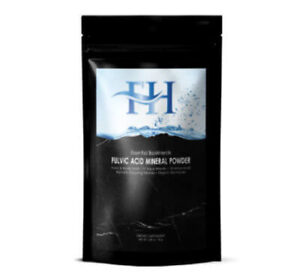Magnesium is responsible for carrying out many essential functions. From activating about 600 enzymes in our body to making sure hormones like insulin are released, it is a crucial element. What’s more is that it’s also important for bone and muscle health. Yet, up to 75% Americans are not meeting their recommended intake.
In many cases, magnesium deficiency remains undiagnosed for a long time until the levels become extremely low and start manifesting in physical symptoms. Before we dive into the use of magnesium for pain management, you must recognize the signs and symptoms of its deficiency. Let’s take a look.
Signs and Symptoms of Magnesium Deficiency
1. Muscle Cramps
If you have persistent twitches and muscle cramps, it is likely you have a magnesium deficiency. These symptoms are caused by a greater flow of calcium into the nerve cells which hyper stimulates the nerves of the muscles.
2. Fatigue and Muscle Weakness
Although fatigue is a normal condition and happens to everyone from time to time, severe or persistent fatigue may be a sign of a more serious health problem. Since fatigue is not a specific symptom, it needs to be looked at with reference to other symptoms to identify the real issue. On the other hand, if you experience muscle weakness, it is a good idea to get your magnesium levels tested.
3. Osteoporosis
It is a condition characterized by weak bones that can increase the risk of fractures. Studies in rats confirmed that a lack of magnesium in the body reduces bone mass. It can also lower the blood levels of calcium, which is the primary building block of bones.
4. Mental Disorders
Studies have associated low magnesium levels with a risk of depression and anxiety. Other mental disorders associated with magnesium deficiency are apathy, which includes mental numbness. In the worst cases, it can lead to a coma.
5. Irregular heartbeat
Arrhythmia or irregular heartbeat is one of the most severe symptoms of magnesium deficiency. It is also linked with other symptoms like lightheadedness, chest pain, and shortness of breath.
It has been observed that the condition of patients with arrhythmia improved after they were injected with magnesium injections.
The Role of Magnesium in Pain Management
Now that we have discussed the signs of magnesium deficiency let’s move forward and learn about the importance of using magnesium for pain management.
Magnesium is essential for proper muscle function. When you exercise or perform any physical activity, magnesium relaxes your muscles and controls the contractions. It helps to lower the build-up of the lactic acid, which is responsible for muscular tension.
Muscle spasms, aches, tightness are all the consequence of magnesium deficiency. You can include magnesium-rich foods like almonds, peanuts, hazelnuts, oats, flaxseeds, sunflower seeds, chia seeds, pumpkin seeds, and dark chocolate in your diet. However, it is recommended to add magnesium supplements in your diet, as well. Still, it is essential to understand that not every form of magnesium is easily absorbed in the body. Here are three types of magnesium that are readily accepted by the body.
- Magnesium Chloride is the most common type of magnesium used for pain management. It is also widely used in topical supplements like lotions and oils that are absorbed through the skin.
- Another type of magnesium used to relieve pain is magnesium sulfate, also known as the Epsom salt. Most people make Epsom salt baths a regular part of their routine for pain management purposes. It has analgesic properties that help soothe sore muscles.
- Magnesium Malate is made by combining magnesium with Malic acid, which is present in fruits like oranges. It relieves muscular tension by relaxing tense areas.
In addition to muscular pain, magnesium can also help relieve migraine and menstrual spasms.
Other Health Benefits of Magnesium
- It helps lower blood pressure and offers protection against many heart diseases because of its anti-inflammatory properties.
- It can improve sleep quality and decrease insomnia symptoms by keeping your mind and body relaxed.
- It helps reduce the symptoms of depression. It is observed as an effective anti-depressant drug.
- It helps to improve blood sugar control in type 2 diabetes by regulating insulin and moving sugar out of the blood and into the cells for storage.
Conclusion
Hopefully, this article provided you enough insight on the importance of magnesium for your body. A balanced diet, coupled with supplements, can ensure a healthy lifestyle and help in pain management. However, if you are looking for quick and effective ways to relieve those muscle spasms, try Pain magnesium lotion by HB Naturals. It is designed for convenient, optimal topical absorption of magnesium with no laxative effect.




